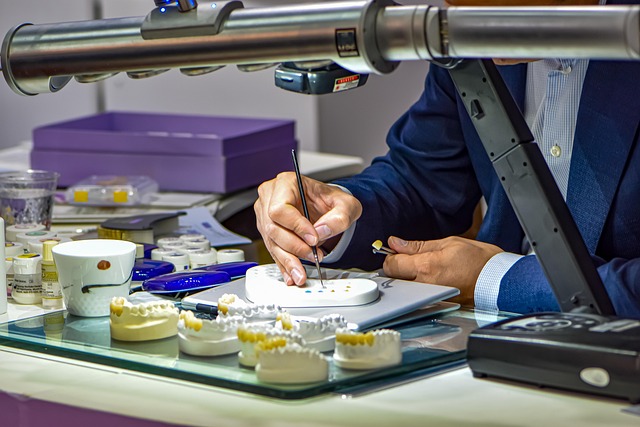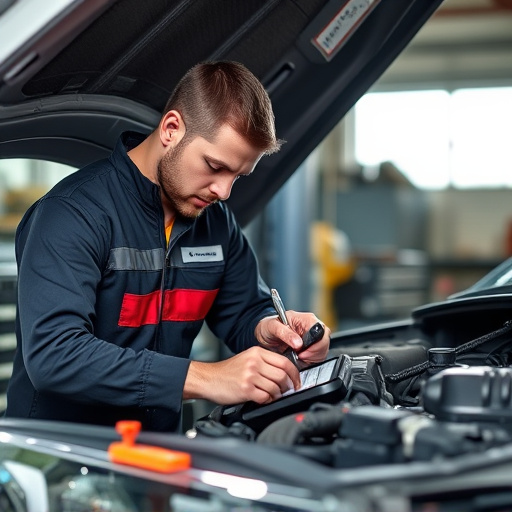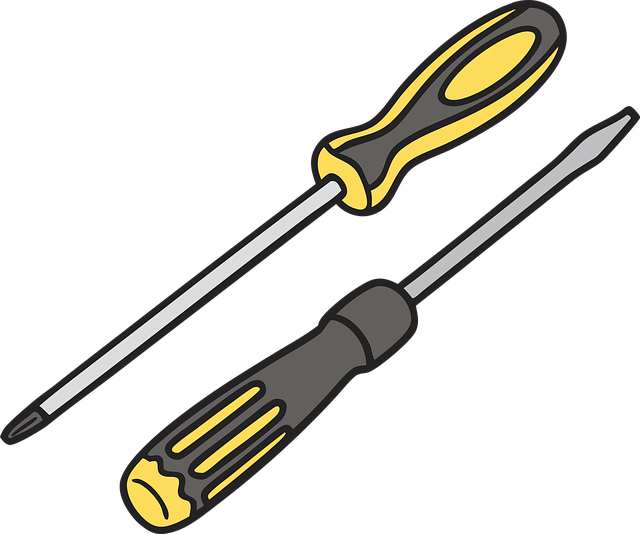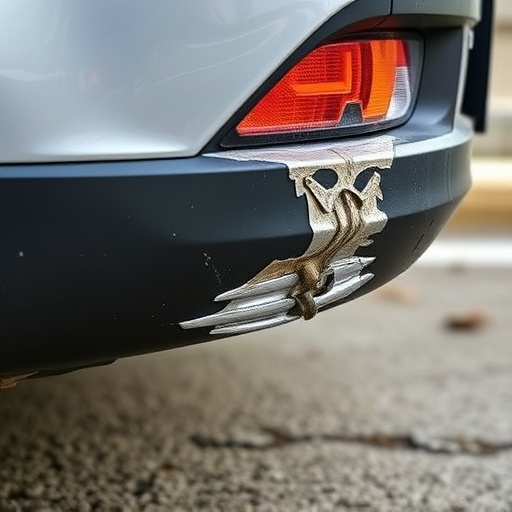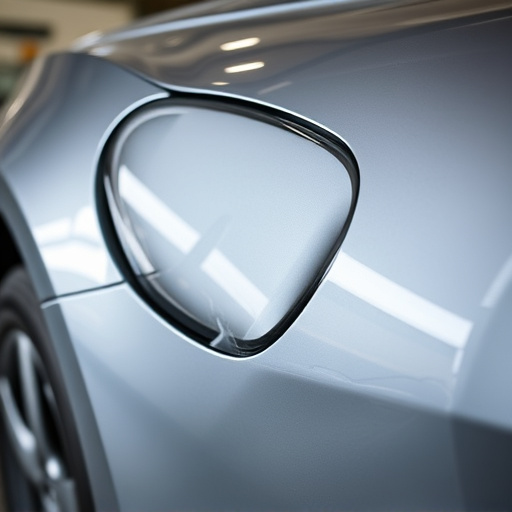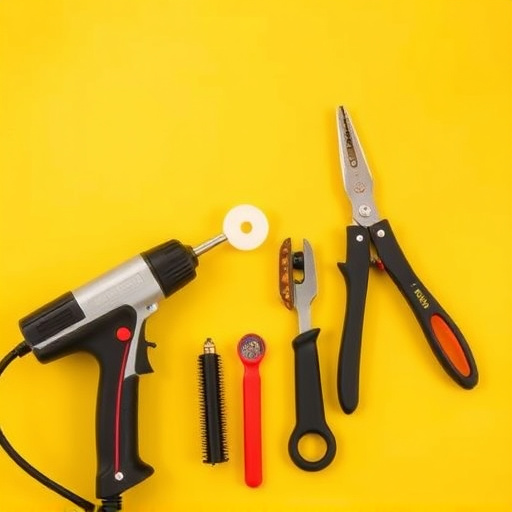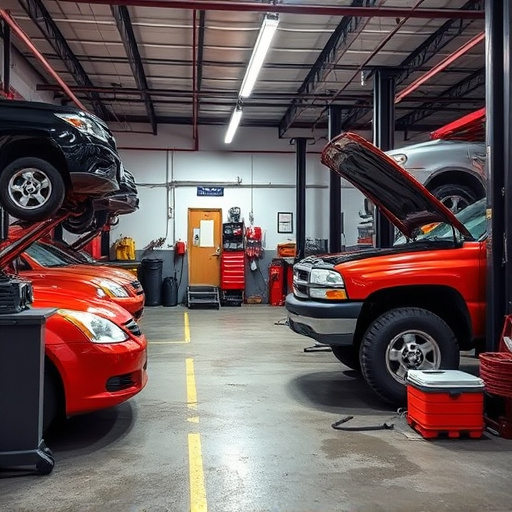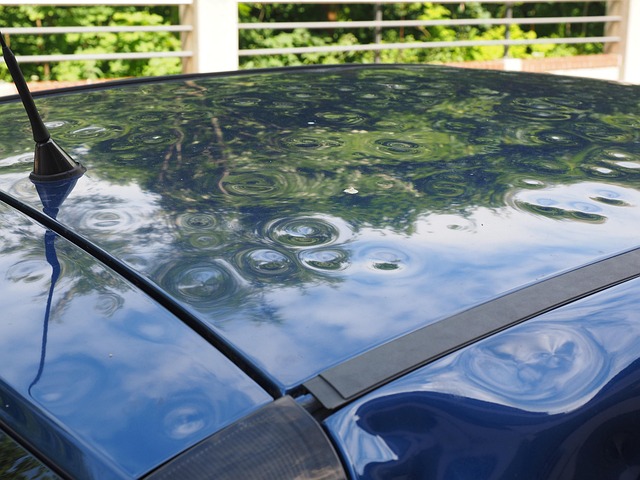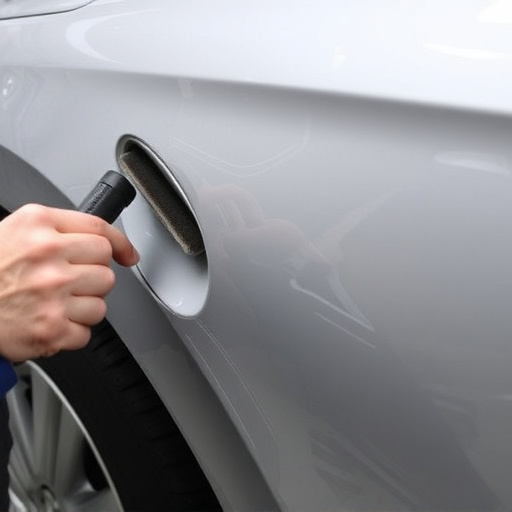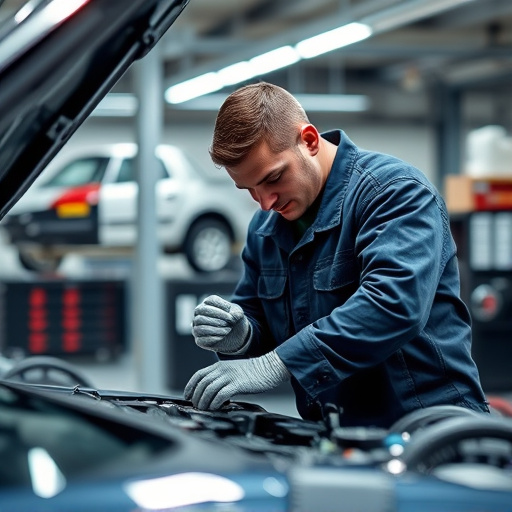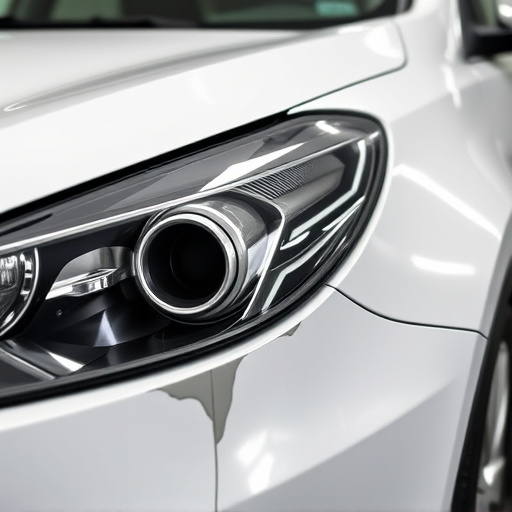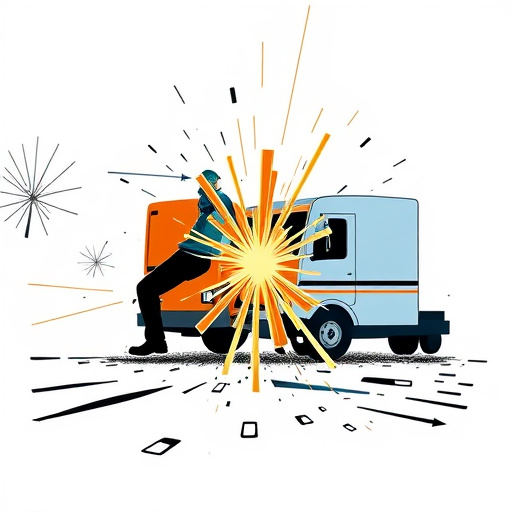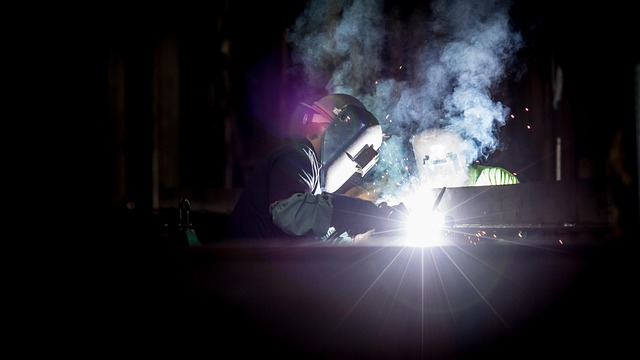The automotive industry is undergoing a significant transition with the rapid adoption of electric vehicles (EVs). To stay competitive, auto repair shops must invest in specialized electric car body repair training and tools to meet the growing demand for sustainable transportation. EVs present unique challenges like high-voltage systems, advanced battery packs, and lightweight materials, requiring collision repair specialists to be adept in modern technology and safety protocols. By embracing these advancements, repair shops can attract eco-conscious drivers seeking expert vehicle repair services tailored to electric mobility, establishing themselves as industry leaders in the evolving automotive landscape.
In an era defined by the rise of electric vehicles (EVs), repair shops must adapt to meet the unique demands of these innovative machines. Electric car body repair is no longer a niche concern; it’s a crucial consideration for any modern auto repair facility aiming to thrive. This article explores why embracing specialized EV body repair equipment and training isn’t just beneficial—it’s essential. From enhancing customer satisfaction to expanding service offerings, understanding the specific needs of electric vehicles is key to staying competitive in the evolving automotive landscape.
- The Rise of Electric Vehicles and Their Unique Body Repair Requirements
- – Increasing market share of electric cars
- – Differences in body repair compared to conventional vehicles
The Rise of Electric Vehicles and Their Unique Body Repair Requirements
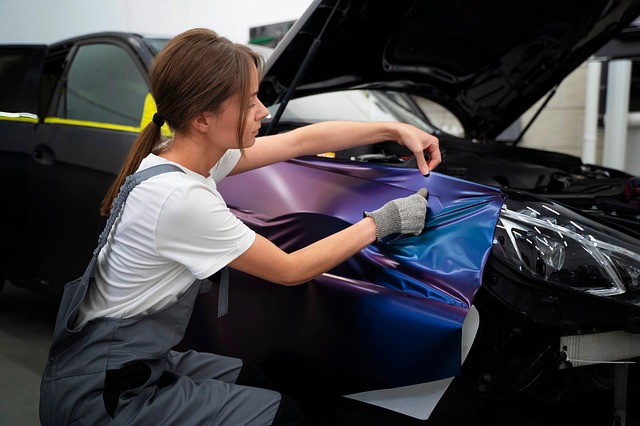
The automotive industry is undergoing a significant transformation with the rapid rise of electric vehicles (EVs). As more and more drivers make the switch to sustainable transportation, auto repair shops must adapt to meet the unique needs of EV body repair. Unlike conventional internal combustion engine vehicles, EVs have distinct components and designs that require specialized knowledge and equipment for effective repairs.
Electric car body repair involves addressing specific challenges such as high-voltage systems, advanced battery packs, and lightweight materials. Auto collision repair specialists need to be well-versed in the latest technology and safety protocols to handle these modern vehicles properly. The transition to EVs presents an opportunity for repair shops to invest in specialized training and tools, ensuring they remain competitive and equipped to serve the growing market of eco-conscious drivers seeking expert auto body work.
– Increasing market share of electric cars

The market for electric cars is experiencing exponential growth, with an increasing number of consumers embracing this eco-friendly mode of transportation. As a result, the demand for specialized electric car body repair services has risen significantly. Repair shops that wish to stay relevant in this evolving automotive landscape must invest in the necessary tools and training to cater to these new vehicles. The shift towards electric mobility is not just a trend; it’s a fundamental change in consumer behavior that presents both challenges and opportunities for the industry.
With their complex electrical systems and lightweight materials, electric cars require meticulous care during the repair process. Traditional automotive collision repair methods may not always be applicable, emphasizing the need for specialized training and equipment. By offering expert vehicle repair services tailored to these new vehicles, repair shops can attract a broader customer base and position themselves as leaders in the industry. Embracing the future of mobility means ensuring that repair capabilities keep pace with technological advancements, ultimately benefiting both businesses and consumers alike.
– Differences in body repair compared to conventional vehicles

Electric car body repair introduces unique challenges compared to conventional vehicles. As electric vehicles (EVs) gain popularity, auto body shops must adapt their collision repair services to accommodate the specialized nature of these new automobiles. Unlike internal combustion engines, EVs have complex high-voltage systems and lightweight construction, requiring precise, meticulous repairs that go beyond traditional metalworking.
The shift towards electric car body repair necessitates advanced training for technicians, specialized tools, and a deep understanding of EV architecture. Shops must invest in up-to-date equipment capable of handling the delicate nature of these vehicles, ensuring safe disassembly, accurate alignment, and secure reassembly while preserving the integrity of sensitive components. This evolution in collision repair services is crucial to meet the growing demand for electric car repairs and maintain high standards of safety and quality.
As the adoption of electric vehicles (EVs) continues to rise, so does the need for specialized electric car body repair services. Repair shops that adapt and invest in understanding the unique requirements of EV body repairs will not only stay competitive but also contribute to the sustainable future of transportation. Electric car body repair is crucial for ensuring these vehicles are restored to their optimal condition, preserving their performance and extending their lifespans.

